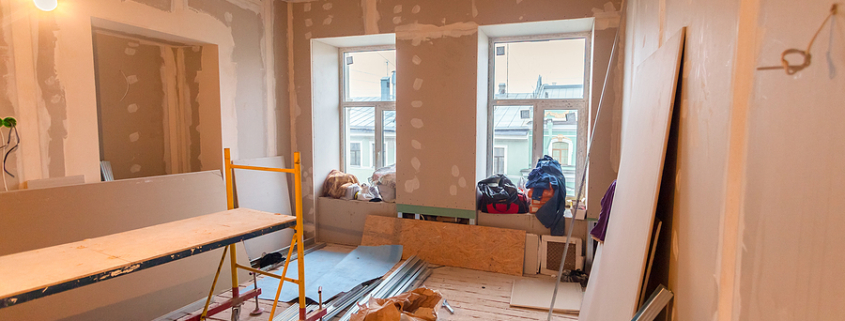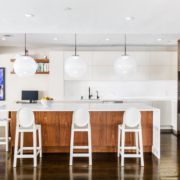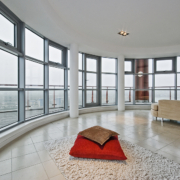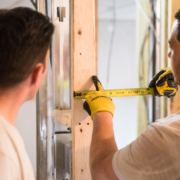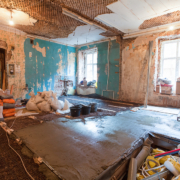Drywall Installation for Soundproofing: What to Consider
Living in New York City means you’re surrounded by energy and excitement, but also by noise. Whether it’s footsteps from the apartment upstairs, honking traffic outside, or a neighbor’s TV bleeding through the walls, unwanted sound can disrupt your home life. That’s where drywall installation for soundproofing comes in. With the right materials and techniques, you can transform your home or office into a quieter, more comfortable space.
As an interior contractor, Nest Inc. has helped countless clients achieve peace of mind with smart drywall solutions. But before you start planning, it’s important to understand what goes into soundproof drywall, which products are best, and what details to consider.
Why Soundproofing Matters
Noise isn’t just annoying. It affects your quality of life. Studies show that long-term exposure to unwanted sound can increase stress and even impact sleep quality. In an urban environment, soundproofing your interior walls, ceilings, and floors is one of the smartest investments you can make. Proper sound control doesn’t just make your home more enjoyable—it can also improve property value, especially in shared or multi-family buildings where privacy is highly valued.
How Drywall Works in Soundproofing
Standard drywall provides some natural sound resistance, but it isn’t designed to block significant noise. Sound travels through vibrations, and thin walls make it easy for those vibrations to pass from one room to the next.
That’s where specialized drywall installation for soundproofing comes in. Soundproof drywall is thicker, denser, and often layered with sound-dampening compounds that absorb and dissipate vibrations. The installation method matters just as much as the material. Proper sealing, placement, and fastening can be the difference between walls that merely muffle sound and walls that truly keep it out.
The Best Drywall for Soundproofing
When researching the best drywall for soundproofing, you’ll find several options that stand out.
Here are the most common materials interior contractors recommend:
Soundproof Drywall (Specialty Boards)
Products like QuietRock and CertainTeed SilentFX are designed specifically for noise control. These boards combine multiple layers of gypsum and sound-dampening polymers, offering the equivalent of several sheets of standard drywall stacked together. They’re thin enough for typical walls but extremely effective at blocking airborne noise like voices, TVs, or music.
Double-Layered Drywall
A tried-and-true option is installing two layers of drywall with a damping compound such as Green Glue sandwiched between them. This approach adds mass and flexibility, both of which are crucial in stopping sound from traveling. It’s cost-effective compared to specialty boards but requires careful installation to maximize results.
Thicker Drywall Panels
Standard drywall typically comes in ½-inch sheets, but upgrading to ⅝-inch panels can add noticeable sound resistance. While not as effective as specialty soundproof drywall, thicker panels still contribute to noise reduction in combination with other methods.
Drywall with Resilient Channels
Sometimes the “best drywall for soundproofing” isn’t just about the drywall itself, but how it’s installed. Resilient channels are thin metal strips installed between the studs and drywall, creating a buffer that prevents sound vibrations from traveling directly through the wall. Pairing these with double layers of drywall can provide significant results.
Other Factors to Consider in Soundproof Drywall Installation
Choosing the right drywall is only part of the puzzle.
An experienced interior contractor knows that soundproofing success comes down to details:
Seal the Gaps
Even the smallest cracks or gaps can let sound leak through. Sealing around outlets, light switches, baseboards, and seams with acoustical caulk ensures there are no weak spots in your wall assembly.
Insulation Behind the Walls
Adding dense insulation like mineral wool or fiberglass inside the wall cavity can enhance soundproofing. Think of drywall as the exterior shield and insulation as the inner padding—they work best together.
Decoupling Structures
When noise is severe, decoupling the wall structure may be necessary. This means separating the drywall from the studs using techniques like staggered stud walls or resilient clips, which break the direct path of vibrations.
Floor and Ceiling Considerations
Walls aren’t the only culprits. Floors and ceilings play a huge role in noise transfer. A full soundproofing plan may include acoustic underlayment for flooring or suspended ceilings with added insulation.
Budget and Space
Soundproof drywall solutions can vary in cost. Specialty boards are more expensive upfront but save labor compared to multiple layers. Double drywall with damping compounds may take more space and effort, but can be tailored to fit your budget. Knowing your goals, whether it’s reducing occasional noise or creating a professional-level recording studio, helps determine the best path.
DIY vs. Hiring an Interior Contractor
Some homeowners consider installing soundproof drywall on their own. While it’s possible, results often fall short without professional expertise. Soundproofing isn’t just about hanging drywall; it requires an understanding of building science, material compatibility, and proper finishing.
An interior contractor brings experience in sealing gaps, integrating resilient channels, and applying soundproofing compounds correctly. They can also advise on building codes, fire ratings, and structural considerations—important factors that DIY projects often overlook. For homeowners in NYC, where apartments and shared walls are common, professional installation ensures maximum effectiveness and compliance with regulations.
Practical Applications of Soundproof Drywall
Not every soundproofing project is the same.
Here are a few common situations where drywall installation for soundproofing makes a huge difference:
- Apartments and Condos: Reduce neighbor noise and improve privacy.
- Home Offices: Create a quiet environment for remote work and virtual meetings.
- Media Rooms: Enhance the sound quality of home theaters while keeping the noise contained.
- Bedrooms: Improve rest and relaxation by blocking street traffic and household noise.
- Studios: For musicians, podcasters, or content creators, soundproof drywall is essential for professional-quality recordings.
Each scenario may require a slightly different approach, which is why professional guidance matters.
Bringing It All Together
If you’re serious about creating a quieter, more peaceful space, drywall installation for soundproofing is one of the smartest upgrades you can make. Choosing the best drywall for soundproofing depends on your specific goals, but in every case, success comes down to combining the right materials with the right techniques.
Partnering with an experienced interior contractor ensures that every detail—from insulation to sealing—is handled correctly. In a city as loud as New York, this can be the difference between constant frustration and true comfort.
Noise may be part of city life, but it doesn’t have to dominate your home or workspace. By investing in soundproof drywall, you’re investing in your health, productivity, and peace of mind. The right materials, careful installation, and professional oversight make all the difference.
Ready to Soundproof Your Space?
At Nest Inc., we specialize in creating quieter, more comfortable homes and offices with expert drywall solutions. Our team knows how to tailor soundproofing to your unique space, budget, and goals. Request your free quote today.

